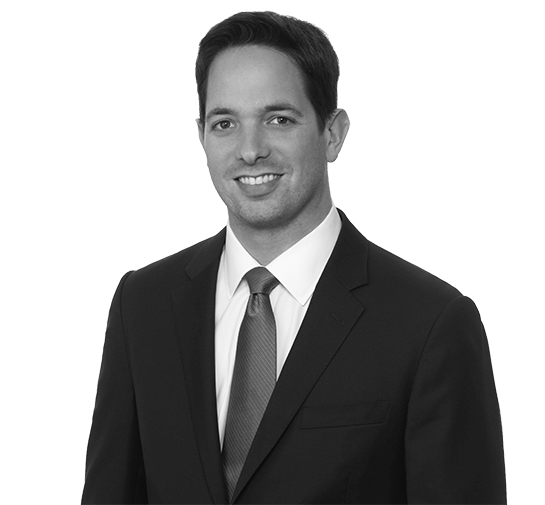Scarsdale Attorney Reverses the Conviction of a Man Wrongfully Imprisoned for 20 Years
- Monday, 29 June 2020 13:52
- Last Updated: Monday, 29 June 2020 13:56
- Published: Monday, 29 June 2020 13:52
- Joanne Wallenstein
- Hits: 5148
 In July 2018 Scarsdale10583 reported that Scarsdale resident and attorney Sam Hershey worked with the Legal Aid Society to overturn the conviction of a man who had been wrongfully imprisoned for 20 years. Now he has done it again!
In July 2018 Scarsdale10583 reported that Scarsdale resident and attorney Sam Hershey worked with the Legal Aid Society to overturn the conviction of a man who had been wrongfully imprisoned for 20 years. Now he has done it again!
This time, Hershey, working pro bono with a team at White & Case, cleared Eric DeBerry in connection with a 1999 shooting. On June 23, DeBerry was released from Mohawk Correctional Facility in upstate New York where he wrongfully served over 20 years in prison.
Commenting on the outcome Hershey said, "We are thrilled for Eric and his family as they reunite for the first time in over 20 years. This is a proud moment for our Firm and an outstanding accomplishment for our team that worked tirelessly on this case and never lost faith that justice would prevail."
"I want to thank the team at White & Case for believing in me and fighting for me," DeBerry said. "After 20 years in prison, I am finally home with my family, including my daughter, who was three months old when I was incarcerated. It is a new beginning for which I have long hoped and am extremely grateful."
Hershey graduated Scarsdale High School in 2001, from the University of Pennsylvania in 2005 and from Columbia Law School in 2012. He now lives in Fox Meadow with his wife and two young children in Fox Meadow and says he returned because, “Scarsdale is a wonderful place to live and a wonderful place to raise a family.”
Here are the facts of the case:
White & Case LLP, working pro bono, achieved victory at the Brooklyn Supreme Court and successfully reversed the conviction of Eric DeBerry in connection with a 1999 shooting.
Following a two-day evidentiary hearing in December 2019 and January 2020, the court found that DeBerry had proven by clear and convincing evidence that he is actually innocent of the crimes for which he was convicted—the first finding of actual innocence in New York State since 2014. DeBerry was released from Mohawk Correctional Facility in upstate New York on June 23, having wrongfully served over 20 years in prison.
DeBerry's conviction occurred in connection with the 1999 shooting of Kareem Collins in Brooklyn. Collins told detectives that he was shot during an armed robbery perpetrated by DeBerry, who was later arrested and charged. He pleaded not guilty and consistently maintained his innocence. Nonetheless, following a jury trial in which Collins testified as the People's primary witness, DeBerry was convicted of assault, robbery and criminal possession of a weapon and sentenced to 25 years to life.
In 2003, DeBerry's claims of innocence were bolstered when Roberto Velasquez came forward and issued a sworn affidavit testifying that he, not DeBerry, was the shooter. Acting pro se, DeBerry filed a motion asserting his innocence. A hearing was held and Velasquez testified. The judge found Velasquez not credible, primarily because his rendition of the shooting differed markedly from the testimony Collins had given at trial. DeBerry's motion was denied, and he remained incarcerated.
In a major breakthrough in DeBerry's case, in 2018, Collins came forward to issue his own sworn affidavit setting forth the truth about the shooting—that he was not the victim of an armed robbery, as he originally testified, but that he was actually trying to rob Velasquez, who shot him instead. This version of events matches exactly what Velasquez stated in his 2003 affidavit and during the hearing. Collins states that he has come forward because he only recently learned of Velasquez's affidavit and wants to do the right thing.
Friends and family of DeBerry reached out to Hershey regarding the case, and White & Case, following a review of the facts and circumstances, agreed to take up DeBerry's cause. Working with the White & Case team, DeBerry filed a new motion based on the new evidence presented in Collins's affidavit. The DA's Office opposed the motion, and a two-day evidentiary hearing followed. On June 16, the Brooklyn Supreme Court overruled the DA's Office's opposition and held that DeBerry had proven by clear and convincing evidence that he is actually innocent of the crimes for which he was convicted.
We asked Hershey what the government does in cases like these to provide compensation to the victim? How will they help DeBerry make up for lost time and get back on his feet?
Hershey replied, “Generally speaking, the government does not do anything to compensate someone like Eric unless he successfully sues them. I am working with another client, who I also helped free from prison, on such a lawsuit.”






